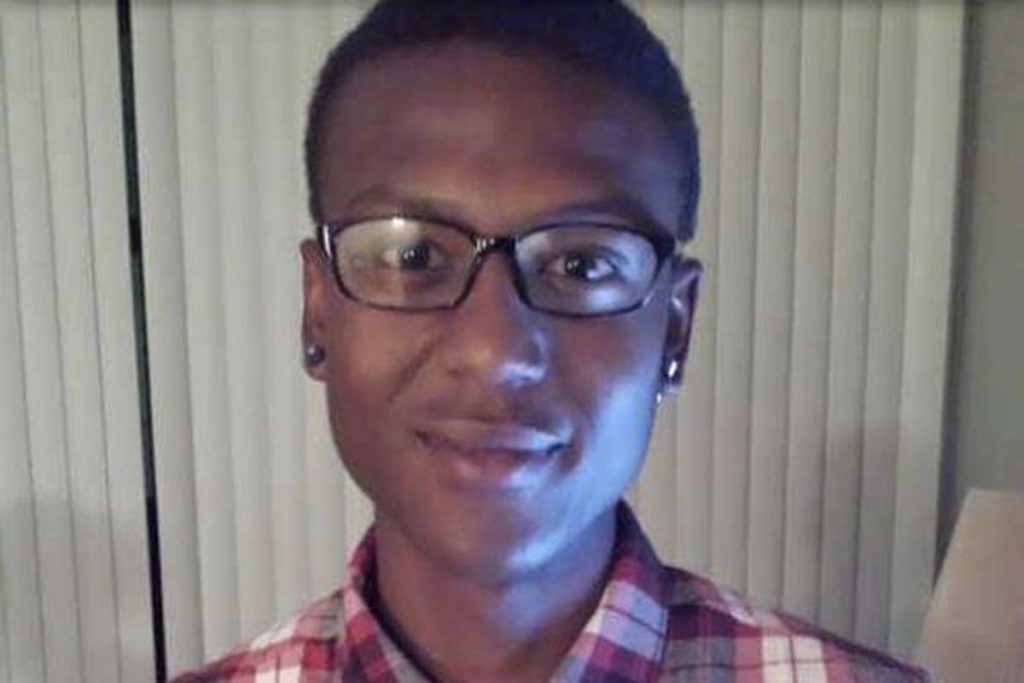
Source: X / Twitter
UPDATED: 5 p.m. ET, Sept. 28
On Wednesday, a former Aurora Police Department division chief testified during the trial for the two ex-officers charged in the death of Elijah McClain.
Prosecutors began to make their case that officers did not have the authority to detain McClain, who they say did nothing wrong to be stopped in the first place.
During testimony, Captain Stephen Redfearn, who currently works for the Boulder Police Department, told the court, “Based upon the policy, my interpretation, just because someone was called in as suspicious doesn’t automatically mean there is responsible suspicion to stop the person.”
Redfearn also discussed multiple Aurora Police Department policies during his hours-long testimony.
“The officer in every occasion has to articulate what he or she is seeing hearing, smelling, all of those things to articulate reasonable suspicion and it doesn’t matter what the call is,” said Redfearn. “That’s something they have to do to then proceed with the contact.”
Defense attorneys suggested McClain was to blame for his own death.
According to 9 News, Reid Elkus, an attorney for Randy Roedema, spent much of Tuesday’s court session trying to point the finger at the slain Black boy suggesting that because McClain chose to resist, his actions were to blame for his death.
Dr. David Beuther a clinical care expert at National Jewish Health took the stand Tuesday for the second time, this time he was cross-examined by the defense. During his testimony, Beuther was asked by Elkus, “Did you rule out for purposes of causation of death that maybe Mr. McClain’s own conduct caused him to die?”
“No,” Beuther replied. “That would be inappropriate for a medical doctor to comment on people’s intentions and how some event happened. That seems like more of a law enforcement or legal expert would be required for that.”
Beuther also told the court he believed McClain’s condition was caused by a combination of factors including aspiration inhaling vomit into his lungs, low oxygen levels, and an increase of acid in his blood due to his inability to breathe properly.
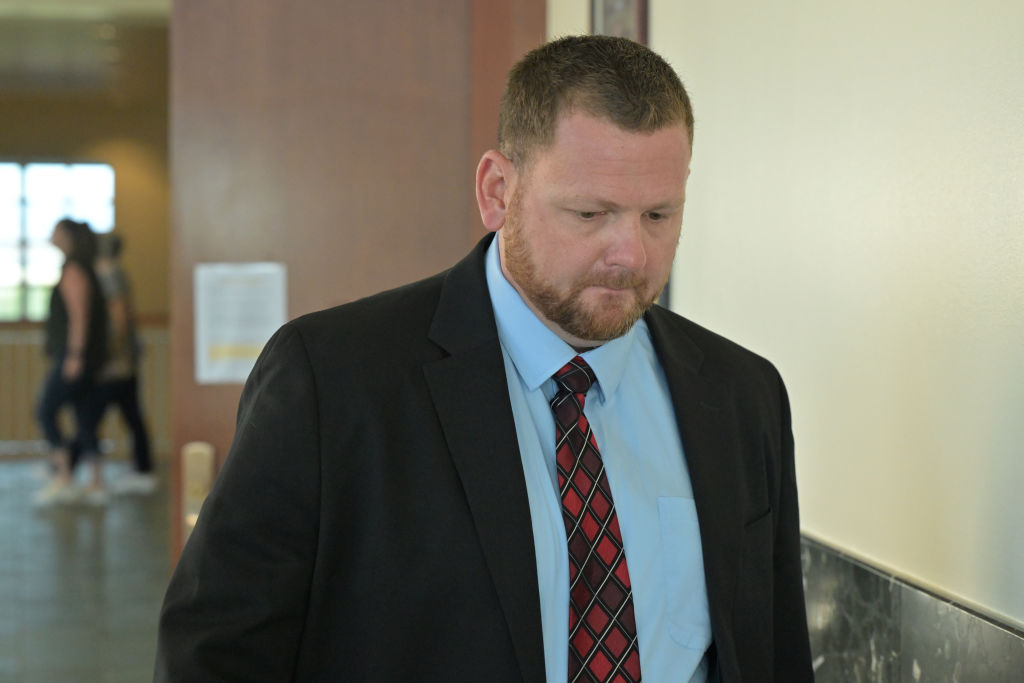
Source: Hyoung Chang / Getty
But Beuther’s point was then rebutted by the defense team who then asked, “You can’t state with a medical degree of certainty that any specific law enforcement actions actually caused any of those three conditions: Medical acidosis, aspiration or hypoxia,” which prompted Beuther to support the defense’s statement.
Beuther was also questioned about the fluid in McClain’s lungs, which he suggests likely got there when McClain was standing up or lying down on his back.
“It’s my expert opinion that he aspirated while the mask was on,” Beuther said. “We know he aspirated, from what happened at the very end of this event at the hospital, and that could have many causes and occurred at any time, but to have solid particles in the mask says he had a major regurgitation, or vomiting, while the mask was on.”
Buether also testified that he believed ketamine, which was injected into McClain by paramedics, was not the only factor in his death.
“In my opinion, it [ketamine] was not the only factor in his death,” Beuther said. “It was the aspiration into the airway, it was the acidosis, it was also the position he was put in that reduced his ability to cough, clear his airway or breathe in adequately.”
Prosecutors call their first witness
Prosecutors called their first witness last week in the trial of two officers charged in connection to the death of 23-year-old Elijah McClain. According to CBS News, during testimony, police lieutenant Delbert Tisdale discussed how body cameras collect “digital evidence” as prosecutors try to make their case against the ex-officers. Tisdale oversees the bodycam program at the Aurora Police Department.
Prosecutors also introduced into evidence video of the confrontation between McClain and the charged officers the night he died. The footage, which was released to the public shortly after the incident, includes McClain telling officers, “I can’t breathe,” the same plea George Floyd made before his untimely death.
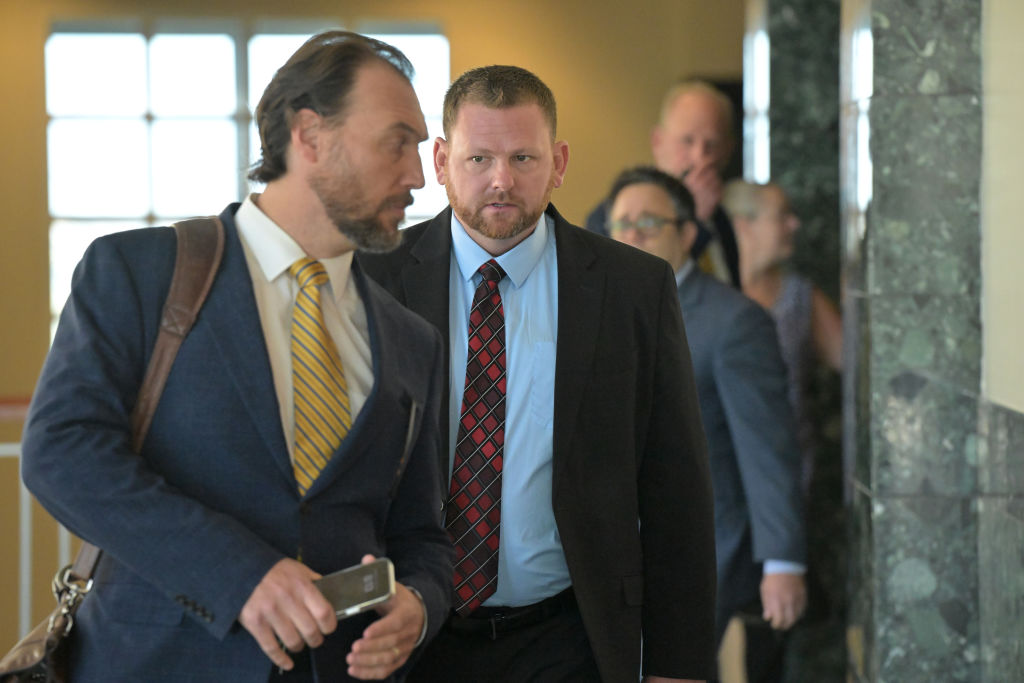
Source: Hyoung Chang / Getty
During opening statements, prosecutors began painting a picture of negligence among the officers, while the defense tried to prove that the officers were not at fault, shifting the blame to the paramedics.
Jury selection wrapped on Monday in the trial for the two officers charged.
According to AP, lawyers on both sides were expected to lay out very contrasting accounts of what happened the night Elijah McClain lost his life.
This is the first of several trials stemming from the death of McClain.
From AP:
One question jurors could be asked to decide is whether it was lawful for officers Randy Roedema and Jason Rosenblatt to detain and use force against McClain, who a 911 caller had reported as being suspicious. If prosecutors can convince jurors the stop was unjustified, that would undermine any argument that McClain’s injuries were a result of the officers just doing their jobs.
Elijah McClain was killed in 2019 by Denver police after he was stopped, harassed, then restrained and injected with ketamine. His death regained the attention of the world after George Floyd was killed in 2020 by Minneapolis officer Derek Chauvin. After Floyd’s death, millions of people called for Colorado officials to reopen the investigation into the death of Elijah McClain.
In 2021, a Colorado grand jury ultimately indicted five police officers and paramedics on manslaughter, criminally negligent homicide as well as other charges.
Aurora police officer Randy Roedema and former officer Jason Rosenblatt are the first defendants to stand trial. Both men pleaded not guilty to charges in January and according to a spokesperson for the Colorado Attorney General’s Office, their trial is scheduled to last until Oct. 17. Roedema is currently suspended without pay while Rosenblatt was fired for making light of a photo reenacting a neckhold similar to the one used on Elijah McClain.
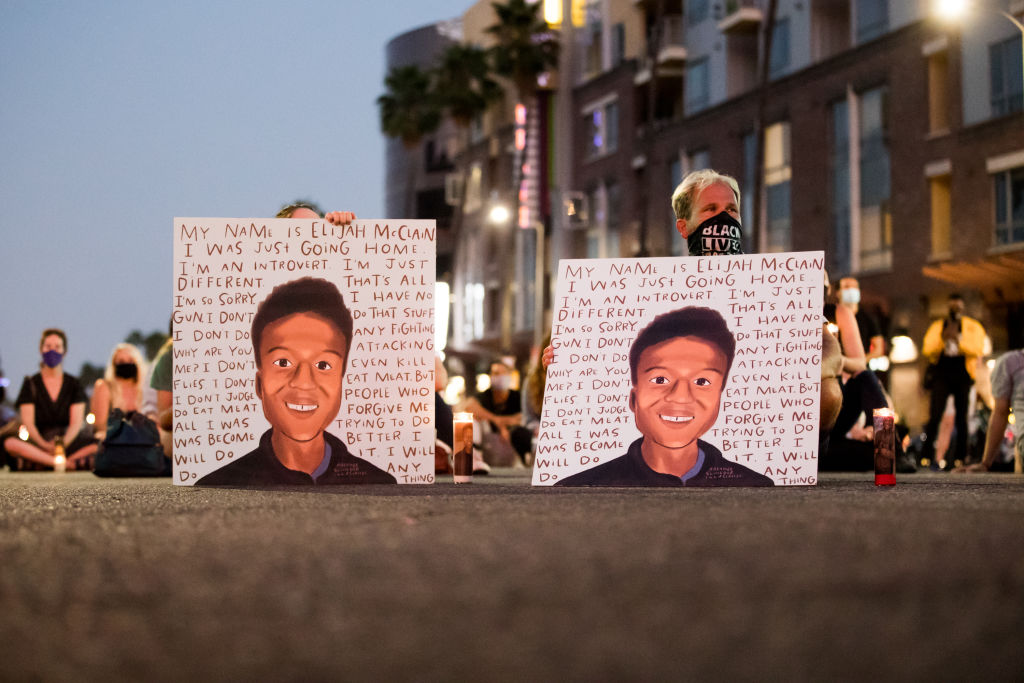
Source: Rich Fury / Getty
Here is everything we know about the case leading up to the trial:
August 2019 – The Death Of Elijah McClain
On Aug. 24, 2019, Elijah McClain was on his way home from a gas station where he bought four cans of Brisk tea when he encountered officers. They stopped him after receiving calls of a “suspicious man.”
Soon, the situation escalated and they put McClain, a Denver native and massage therapist in Aurora, in a chokehold and forced him to the ground for 15 minutes. He eventually started vomiting and complaining that he couldn’t breathe.
“There was a physical struggle,” former APD Chief Nick Metz said back in October. “When (police) saw (McClain), they told him to stop. He wouldn’t stop. Again, he was wearing a ski mask, it’s 10:30 p.m. at night in a residential area, so obviously that creates some concern.”
However, according to Elijah’s family, he was anemic and he favored wearing a ski mask to keep his face warm while he was walking.
In November 2019, a judge ruled that criminal charges wouldn’t be pressed against the cops involved in the arrest of McClain because there wasn’t any indisputable evidence that an officer used “unjustified” force.
May 2020 – The Death Of George Floyd
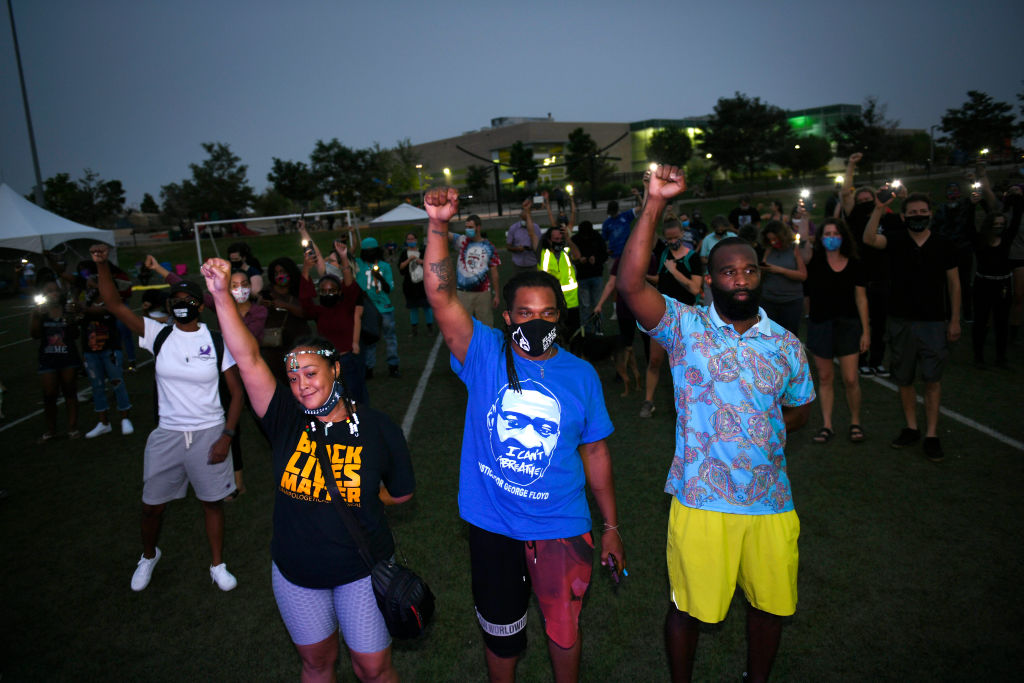
Source: Helen H. Richardson/MediaNews Group/The Denver Post via Getty Images / Getty
George Floyd’s death on May 25, 2020, was the catalyst for renewed calls for justice in the death of Elijah McClain. After Floyd’s death, activists demanded policy changes throughout the country including banning the chokehold.
February 2021 – Independent Investigation Finds Cops Had No Legal Basis For Stop
An independent probe launched in February 2021, found that police and paramedics made crucial errors, leading to the 23-year-old’s demise. The report released stated that Aurora, Colorado, police officers involved in the fatal August 2019 confrontation did not have a legal basis to stop him, frisk him or physically restrain him.
“At the time of the (ketamine) injection, Mr. McClain had not moved or made any sounds for about one minute,” a section of the 157-page report states, according to CNN. “In addition, EMS administered a ketamine dosage based on a grossly inaccurate and inflated estimate of Mr. McClain’s size.”
McClain who stood at 5-foot-7 and 140 pounds was administered enough ketamine for a man weighing 190 pounds, according to the panel’s findings.
The investigation also claims that officers never “articulated a crime that they thought Mr. McClain had committed, was committing or was about to commit,” and that their intervention set up “ramifications for the rest of the encounter.”
September 2021 – Cops, Paramedics Charged In Black Man’s ‘Murder’
Two years after the death of Elijah McClain the Colorado police officers and paramedics involved in his death were indicted by a grand jury.
The manslaughter indictments in Elijah McClain’s death — which advocates have called “murder” — came more than one year after the Aurora City Council unanimously voted to adopt a resolution calling for an independent investigation following allegations of misconduct by officers with the Aurora Police Department and the responding paramedics.
A total of five people were charged — two police officers, one former police officer and two paramedics — each with one count of manslaughter and criminally negligent homicide for the death that was preceded by McClain telling police that he couldn’t breathe because of the chokehold in which he was placed.
A total of 32 counts were handed down by Colorado Attorney General Phil Weiser, who was appointed a special prosecutor in the case. McClain’s father told NBC News he was “thankful” that McClain’s killers will finally be held accountable.”
November 2021 – Aurora, Colorado Pays Elijah McClain’s Family $15 Million Settlement
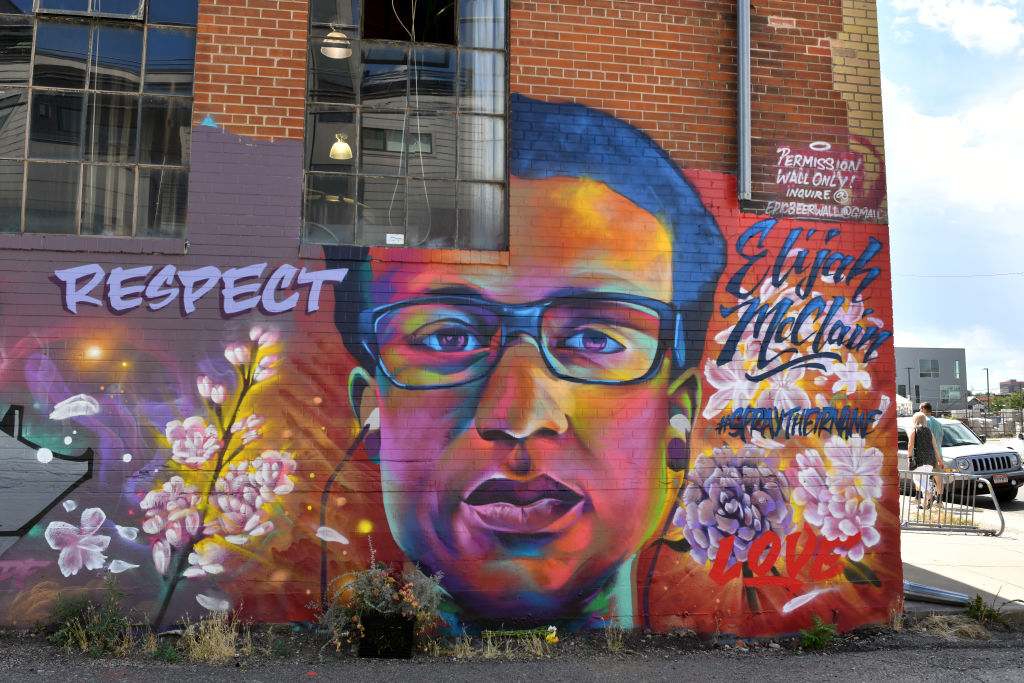
Source: Hyoung Chang/MediaNews Group/The Denver Post via Getty Images / Getty
In November 2021, over two years after the death of Elijah McClain, the city of Aurora settled with his family. In the settlement, they received $15 million, which was considered the largest such settlement in Aurora’s history.
September 2022 – Elijah McClain’s Amended Autopsy Affirms Violent Arrest Caused His Death
On Sept. 24, 2022, Colorado Public Radio reported the autopsy report was changed to death by ketamine. The amended autopsy was released over a year after officials ordered its update.
As amended, the autopsy confirmed that Elijah died due to “acute Ketamine administration during violent subdual and restraint by law enforcement and emergency response personnel.”
![]()
SEE ALSO:
Justice For George Floyd: A Complete Timeline Of Ex-Cops Being Held Accountable For Police Murder
A Disturbing Timeline Of Ahmaud Arbery’s Killing And Murder Investigation In Georgia
The post Rest In Power Elijah McClain: A Complete Timeline Of Everyone Being Held Accountable In His Death appeared first on NewsOne.

